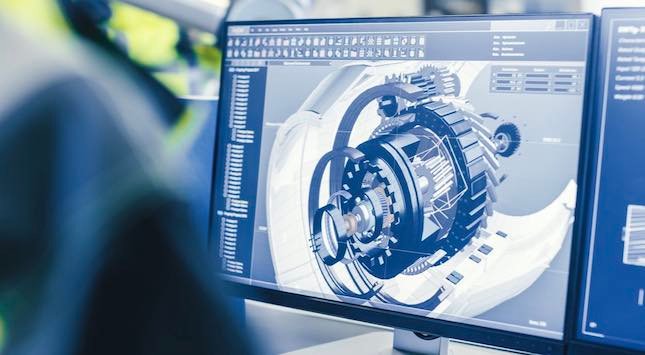Although among the largest global industries, construction has historically been quite slow to adopt any new changes. Common processes and operations remained the same for decades, and productivity and efficiency suffered as a result.
As construction companies began to realize that inefficient operations have a devastating effect on their profits and overall success, they quickly turned to technological solutions to resolve these issues.
As a result, technological advancements have truly transformed the industry and solved frequent problems construction firms have been facing. With that in mind, here are just some of the many ways technology is currently impacting the construction industry:
Mobile Technologies
When it comes to construction, the best tech to stay ahead in business includes mobile applications and technologies that enable companies to flawlessly maintain projects and processes. Mobile tech can gather real-time data and transfer it between project management teams and job sites, thus allowing them to make any necessary changes immediately.
Using these applications, users can submit time cards, work records, expense reports, and other important documents to save valuable time and money on data entry and increase on-site productivity.
Mobile applications are mainly used for streamlining communication and improving collaboration between the office and the project site, allowing personnel to receive needed information quickly and implement alterations accordingly.
Wearables
Wearables are also being used to monitor construction workers and work environments to make the job site safer. Wearable tech can be embedded into clothing and personal protective equipment (PPE) and is already a common part of items such as hard hats and safety vests.
These gadgets are often equipped with GPS trackers, environmental sensors, and biometrics to monitor the movement of workers, their posture and motions, as well as potential slips and falls.
Geofencing tech can be used to establish hazardous areas and alert workers of their existence, while smart clothing that monitors heart rates, respiration rates, and skin temperatures can aid in determining the health of workers.
Internal Software
Productivity and efficiency have been stagnant for decades in the construction industry. Projects are difficult to manage manually from the planning to the execution stages, budgeting projects and organizing payrolls can turn out to be challenging tasks, and the designing, scheduling, and testing processes can be particularly time-consuming for industry professionals.
To combat these issues, construction management software solutions are being implemented across the industry. These applications can help to streamline inefficient processes and guide companies toward the most productive solutions. It can also be customized according to different businesses, unique projects, and their long-term goals, thus enabling construction firms to reach higher levels of success.
Construction Robots
Construction robots are great at performing simple and repetitive tasks, which is why solutions such as rebar-tying and bricklaying robots are gaining traction. These robots can perform their tasks continuously and tirelessly, making them quicker, more efficient, and more affordable in the long term than human workers.
However, it’s important to remember that construction robots aren’t meant to replace humans entirely, as workers still need to set them up and oversee the quality of their work. Instead, these robots are made to augment and aid the performance of construction workers, allowing them to be more effective and productive in their work.
Artificial Intelligence
Artificial intelligence (AI) was a game-changer in several industries, and construction wasn’t immune to it either. It can help to solve various issues by learning from previous problems and helping the sector avoid any last-minute glitches. Throughout the pre-construction process, AI can ensure optimal operations and protect against frequent changes in plans.
It can also be integrated with procurement, finance, and marketing to keep the workflows undisturbed. AI chatbots can also be implemented into construction company websites, thus streamlining the interactions between builders and consumers. Questions can be answered more quickly, and suggestions and complaints can be used to make the necessary changes in time and according to the client’s wishes.
Virtual Reality
Virtual reality has truly been revolutionary in the construction industry, giving customers a better understanding of what projects will look like once finished. This allows them to visualize the building, make any changes in time, and pre-plan the finishing touches before construction even begins.
Throughout this process, designs can be customized according to the client’s wishes and demands, thus allowing for a more personalized and unique customer experience. However, virtual reality has a more practical application as well.
It enables construction companies to plan their projects in more detail, helping to reduce labour costs, avoid timeline delays, improve training, and enhance on-site safety as a result.
While it might have come at a later date, technology has impacted construction in several positive ways. The industry is now more productive, efficient, and streamlined than ever before, leading construction companies to higher levels of success.






